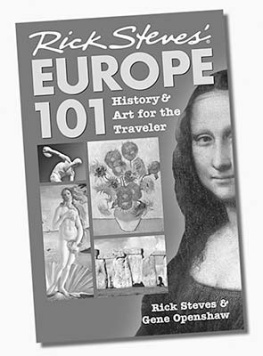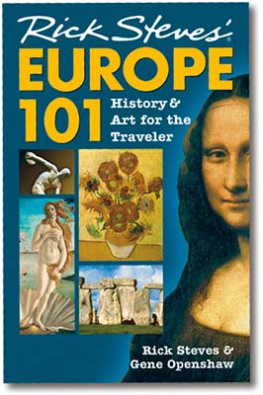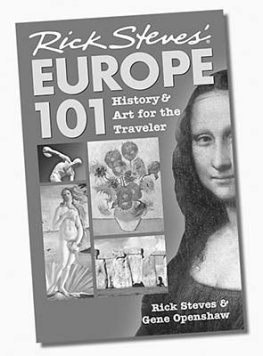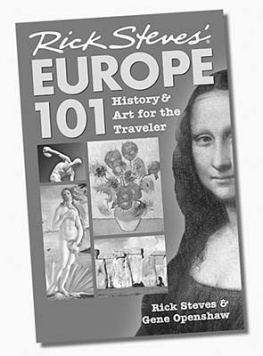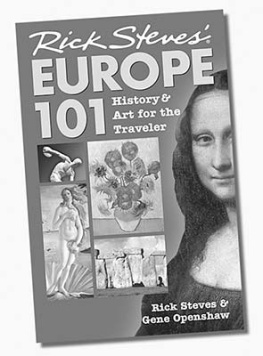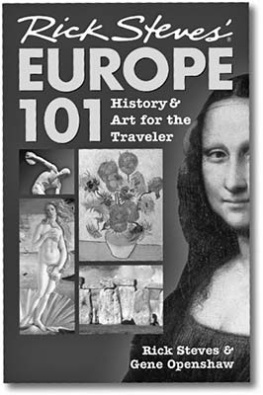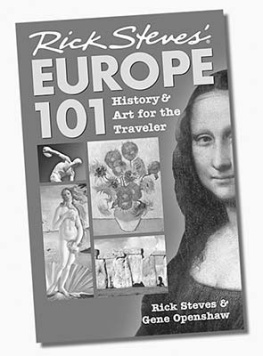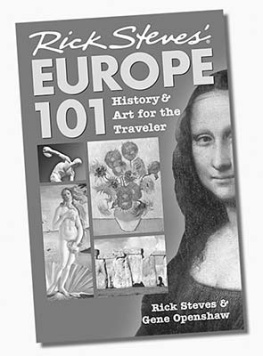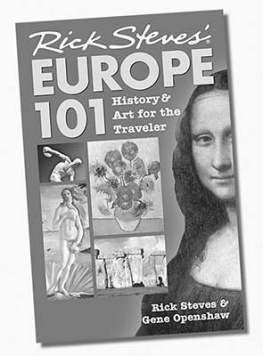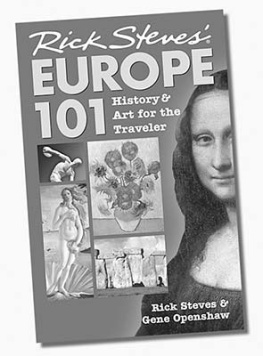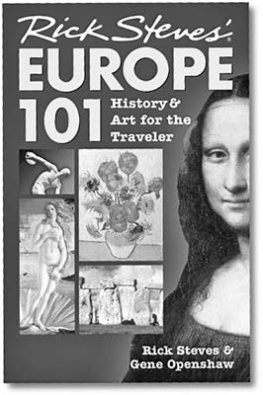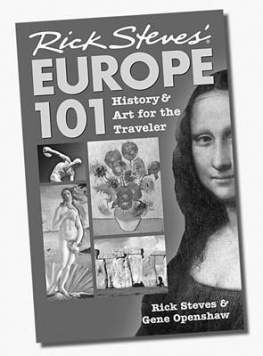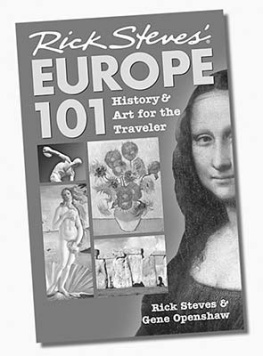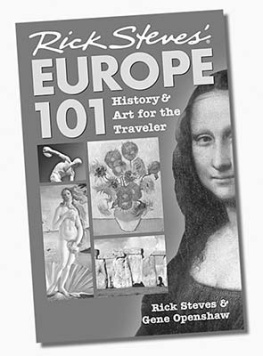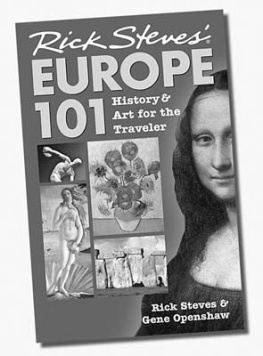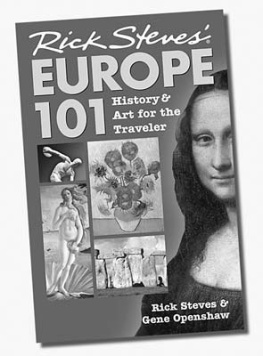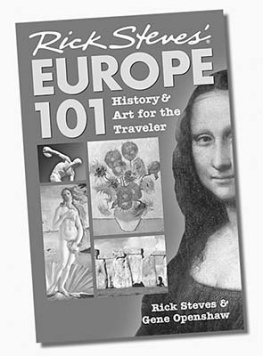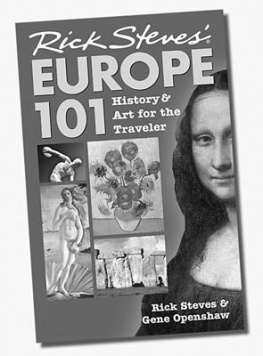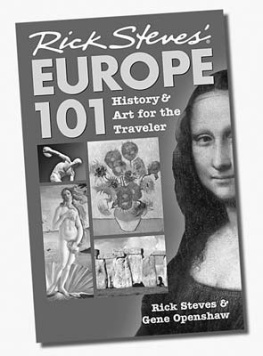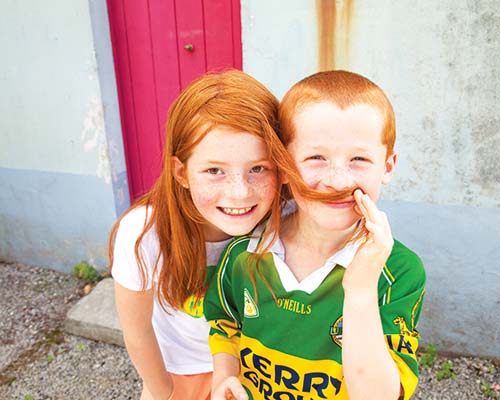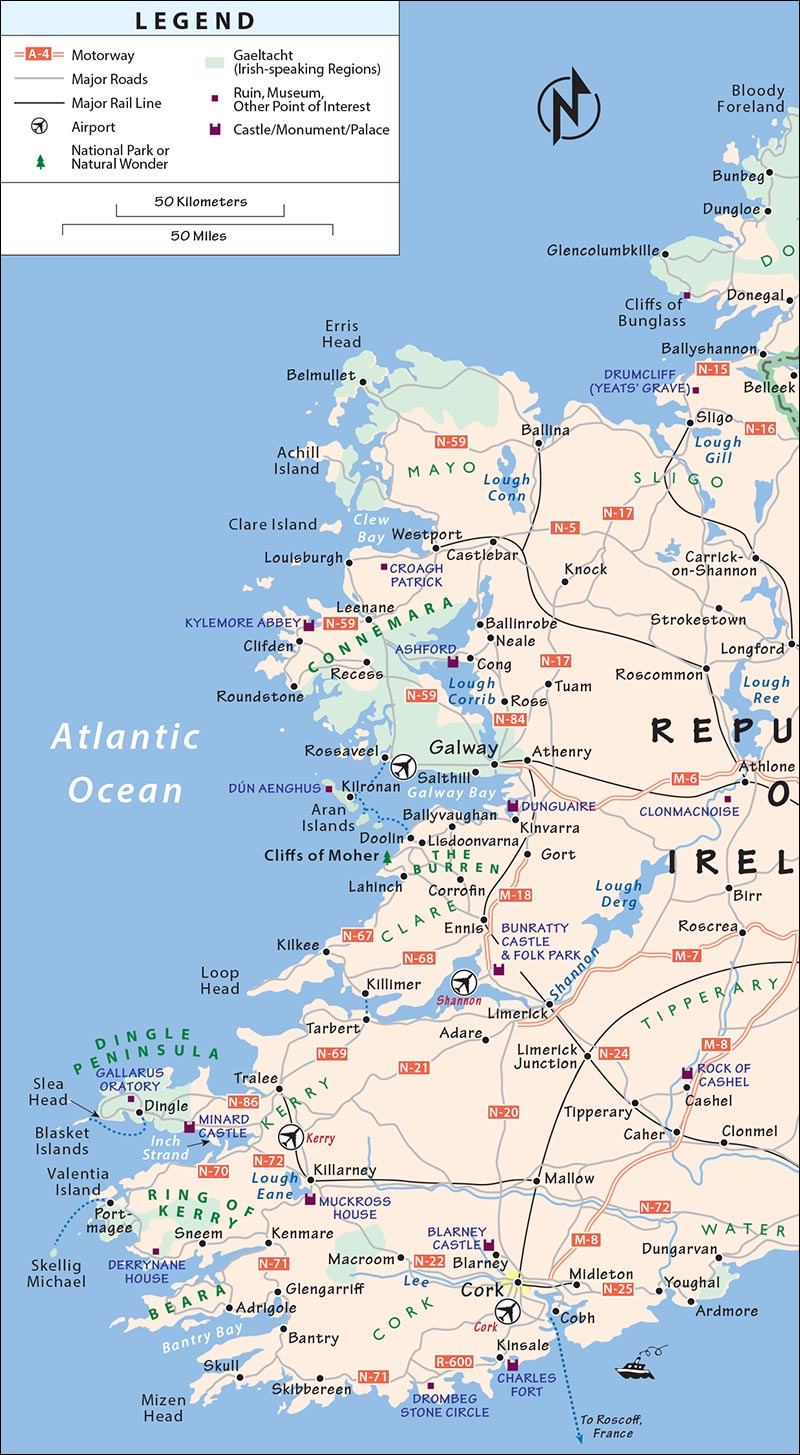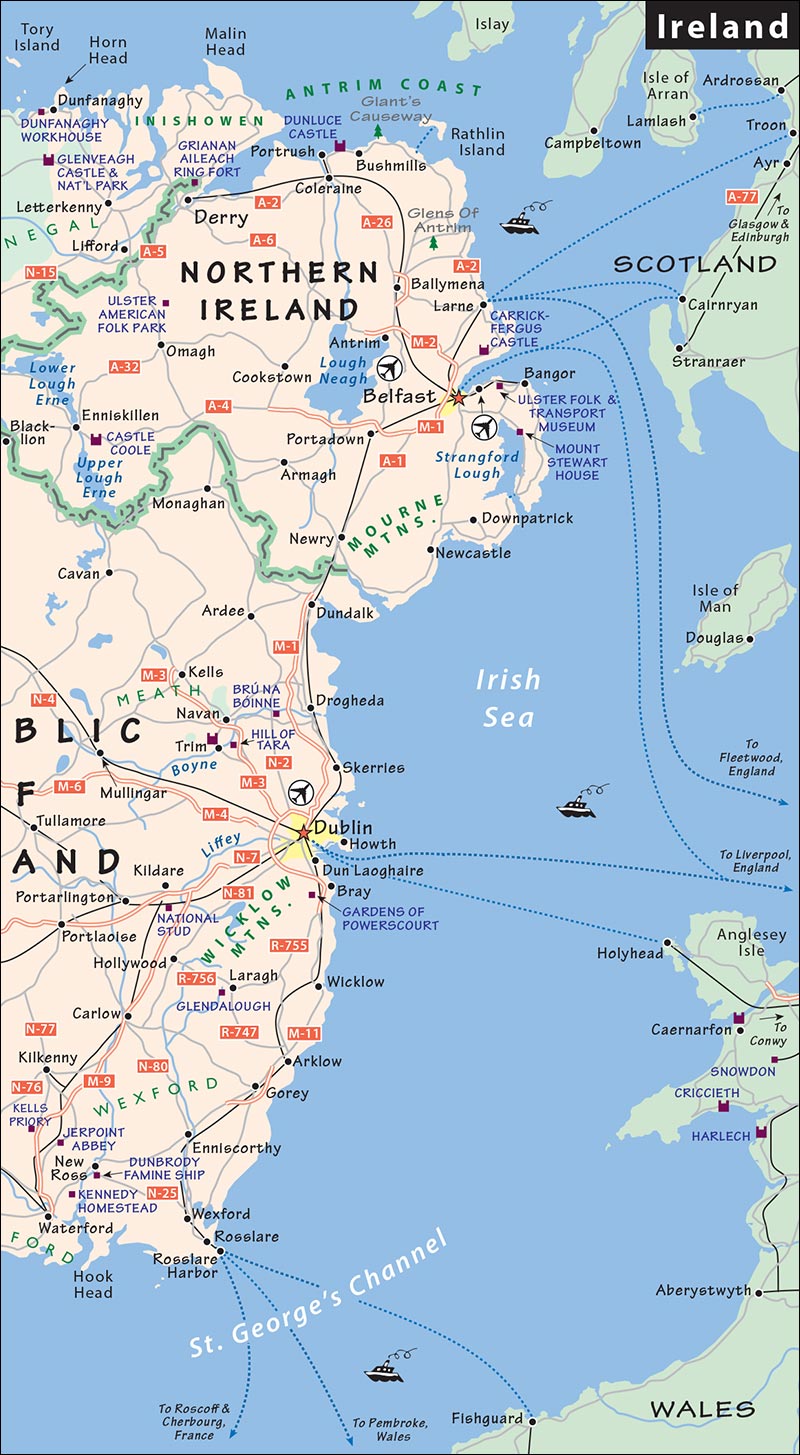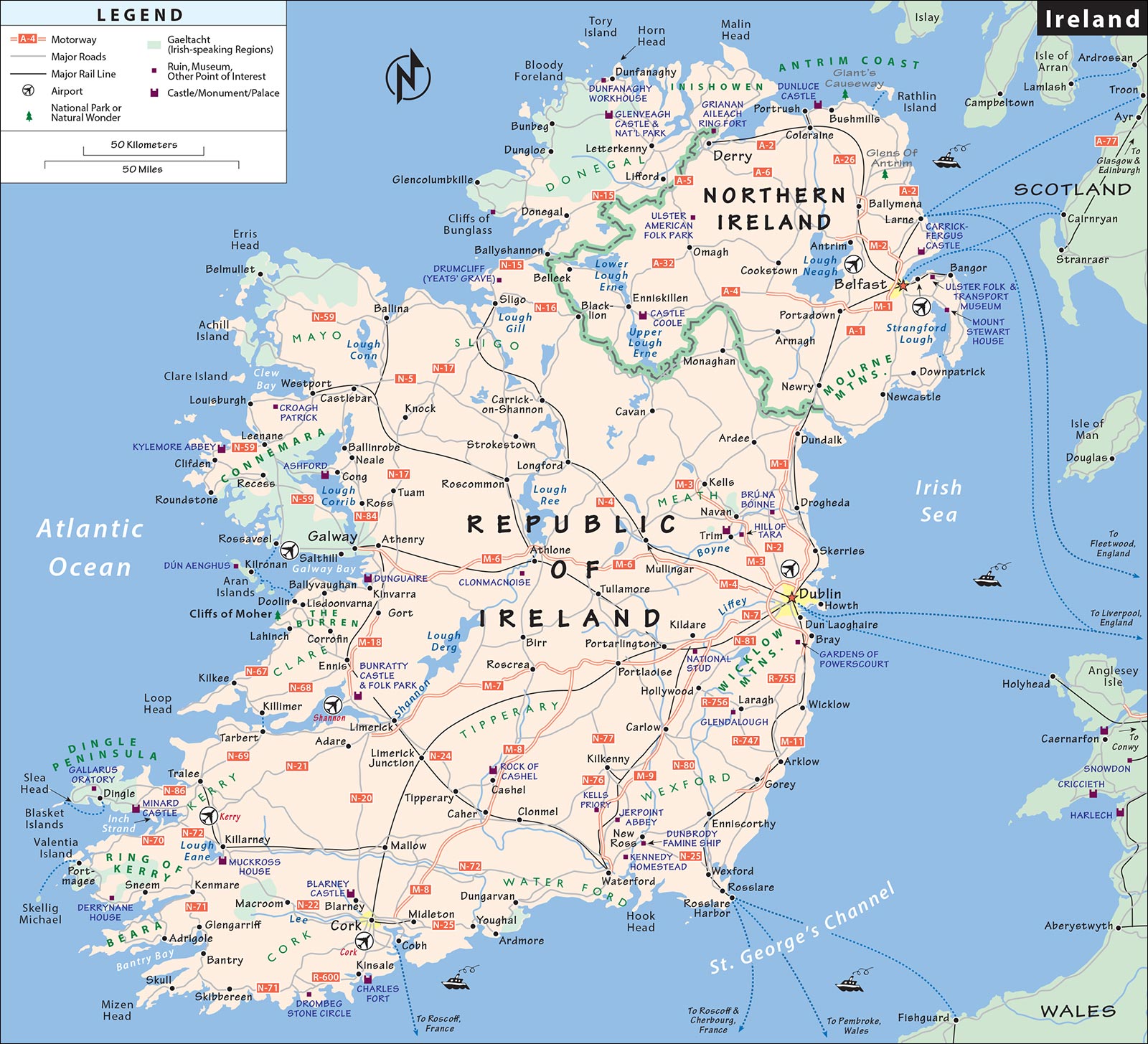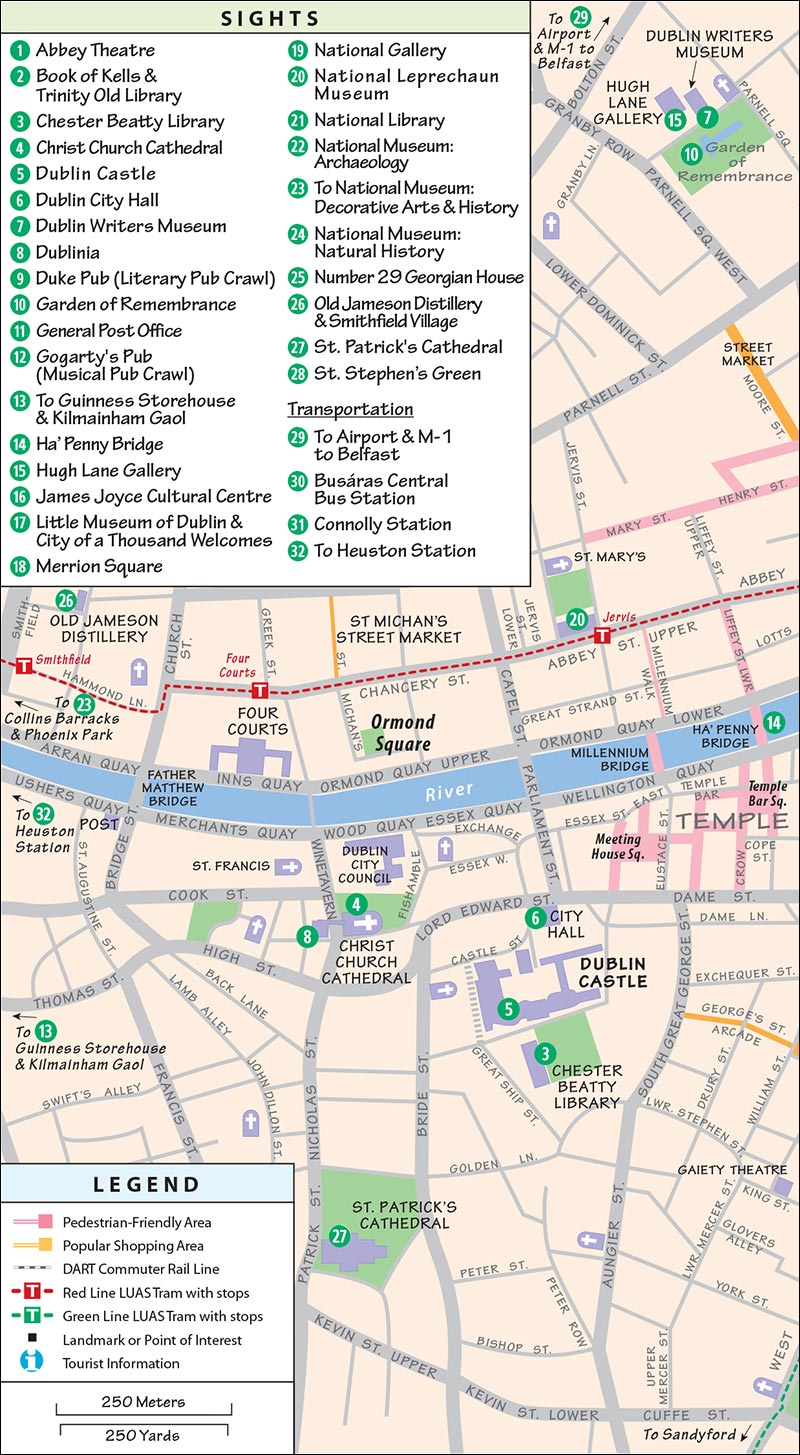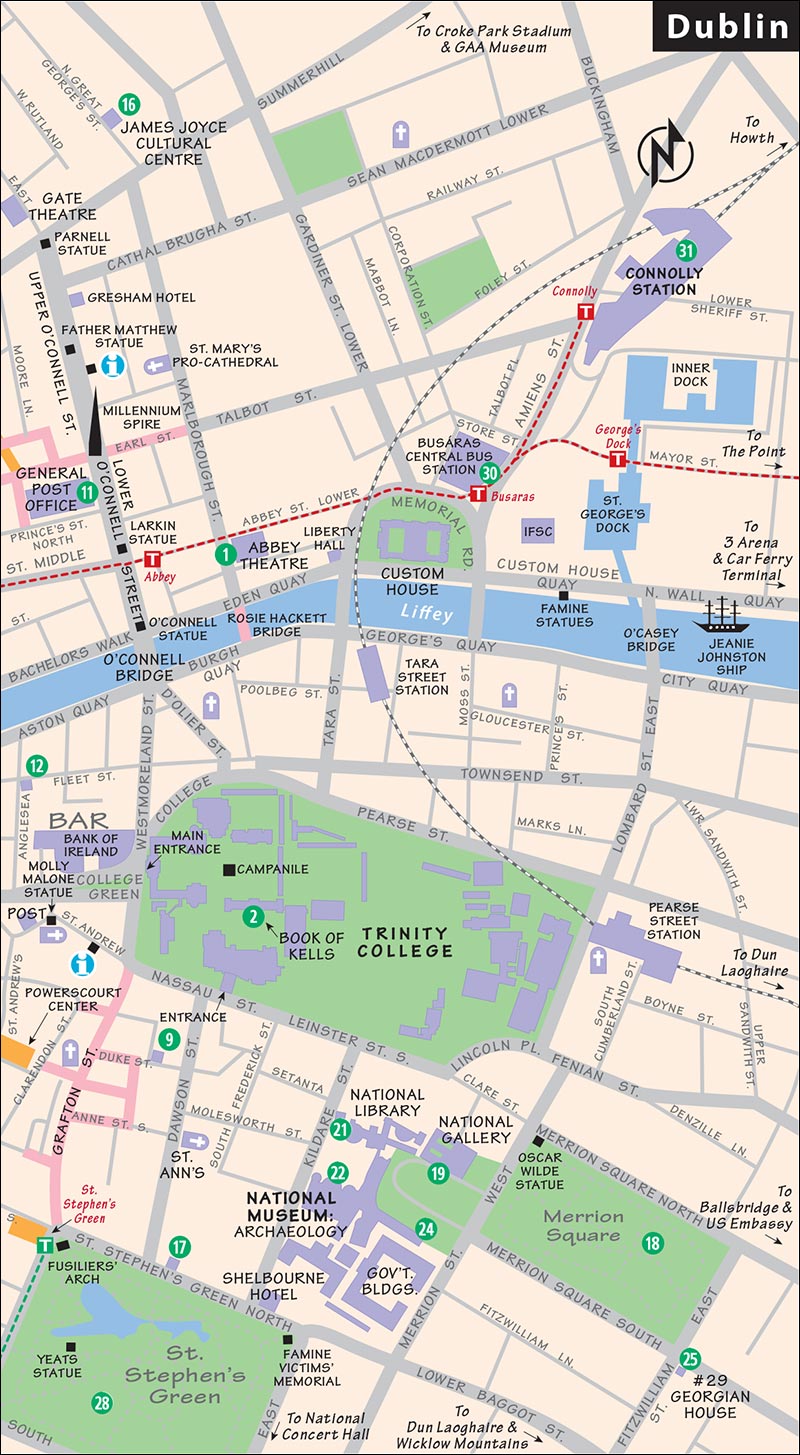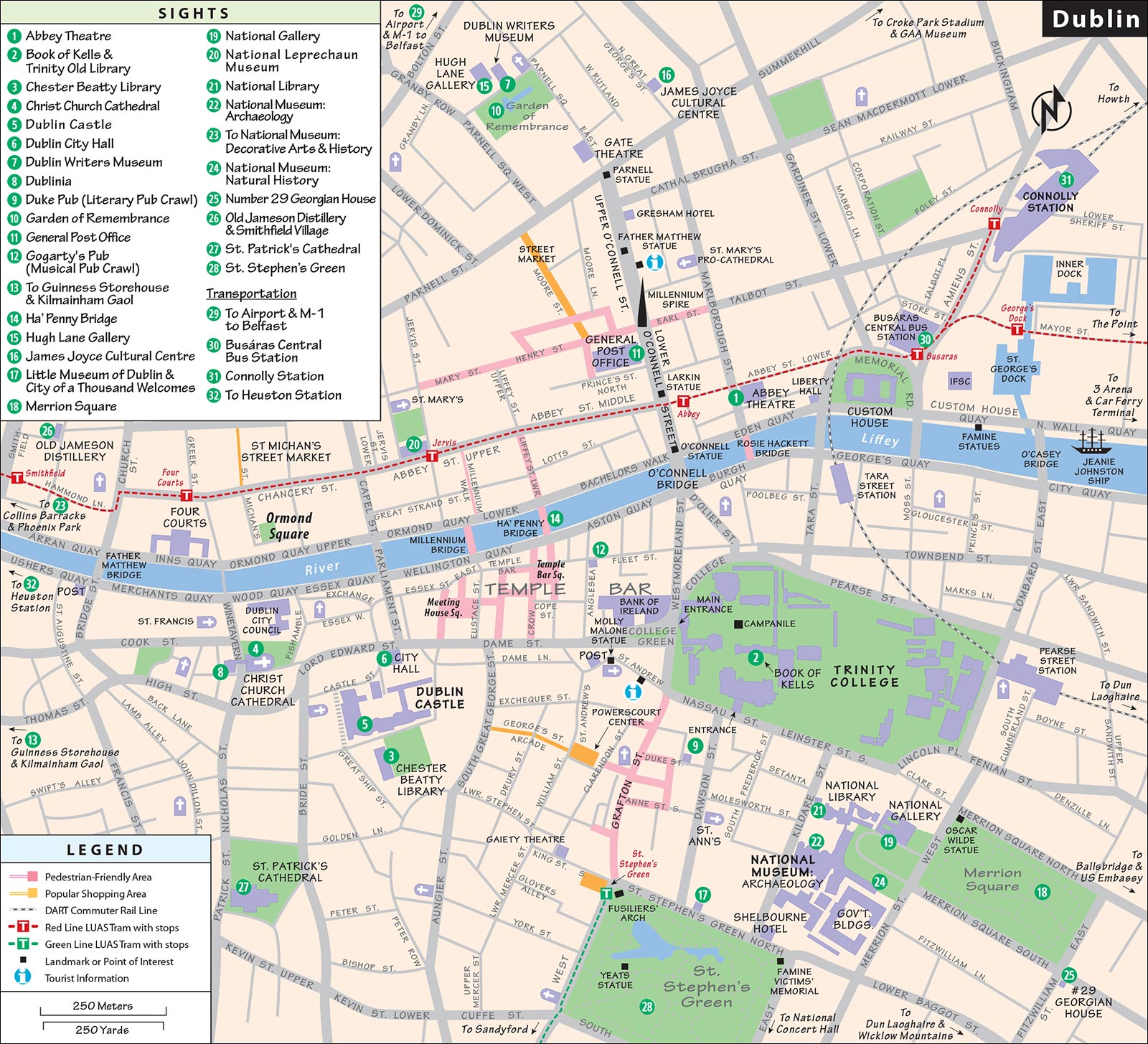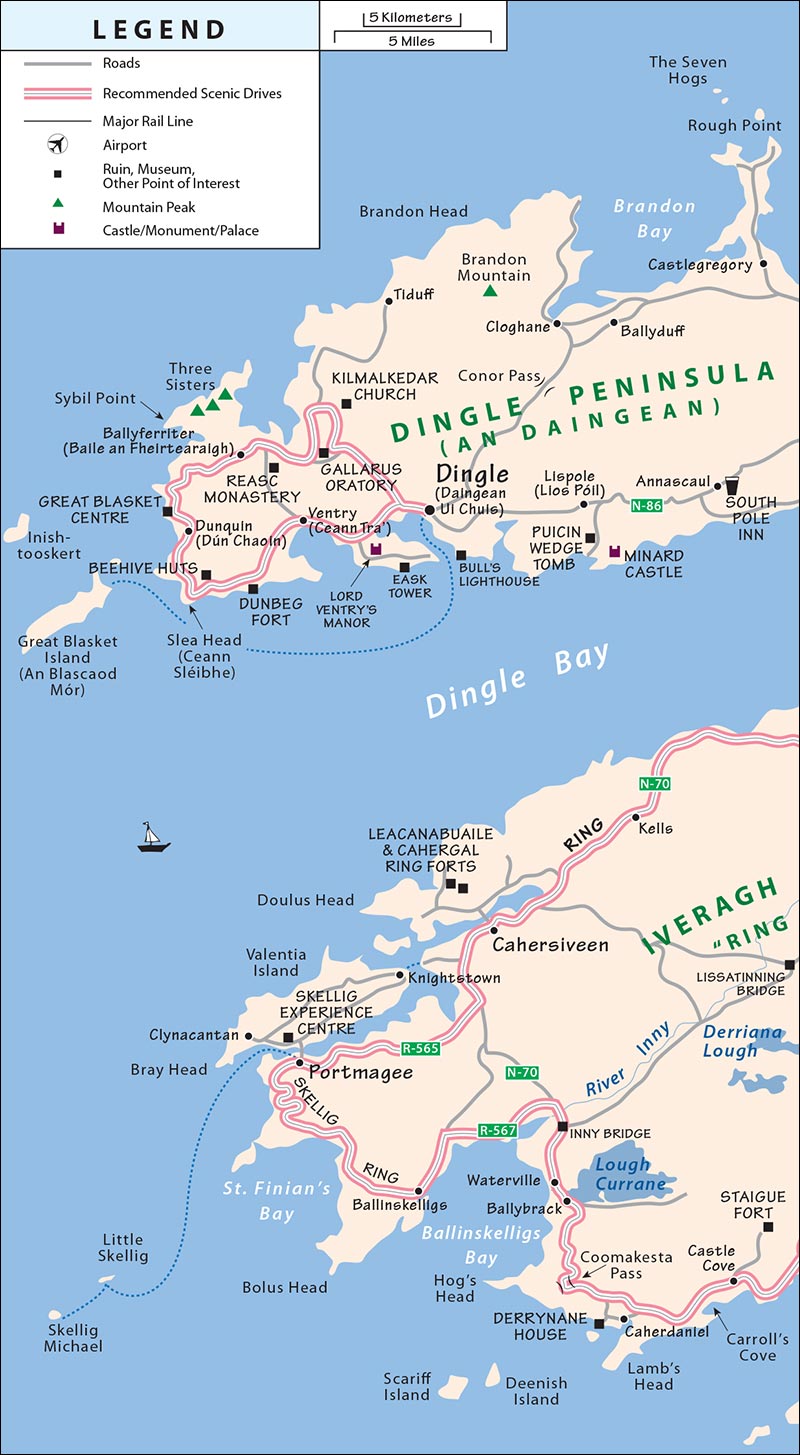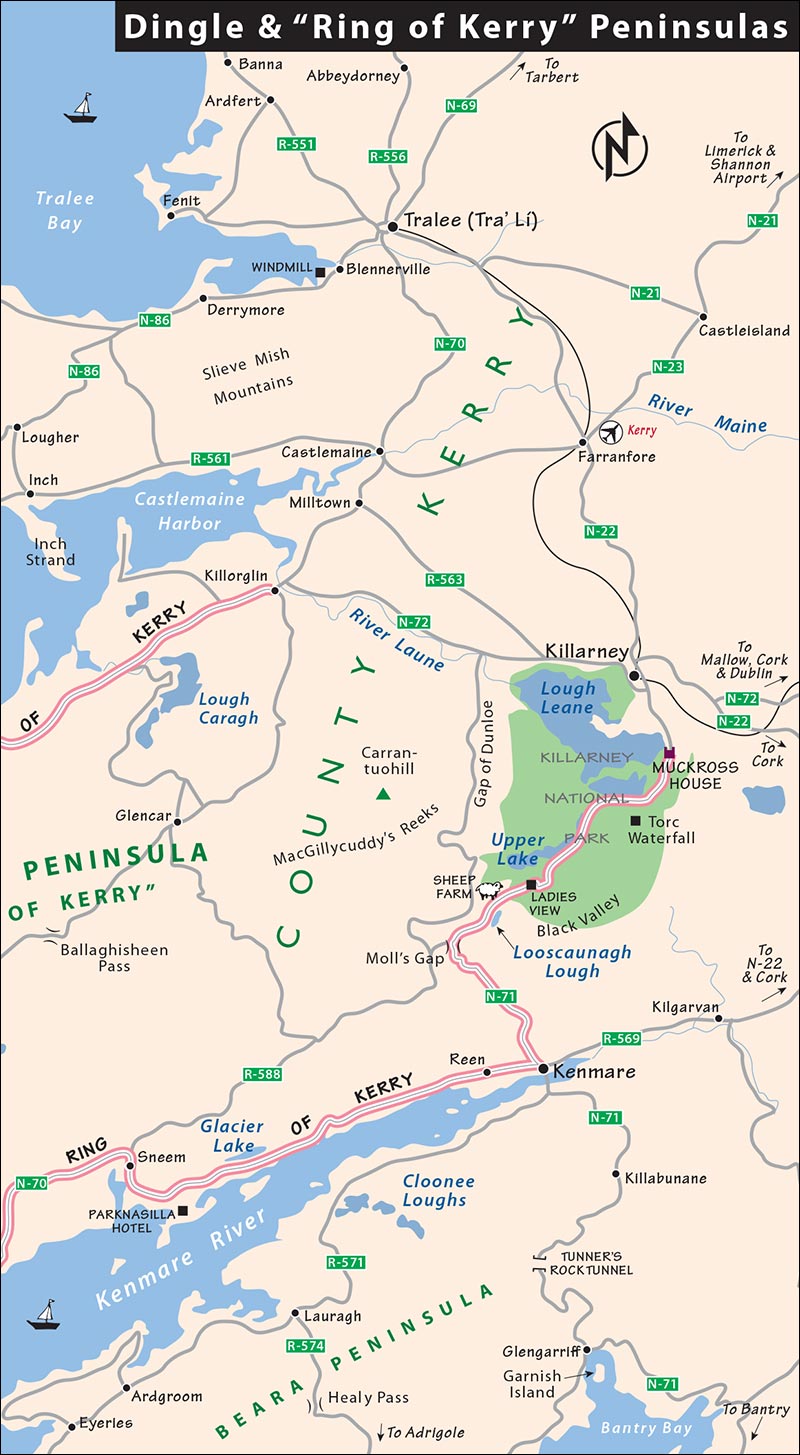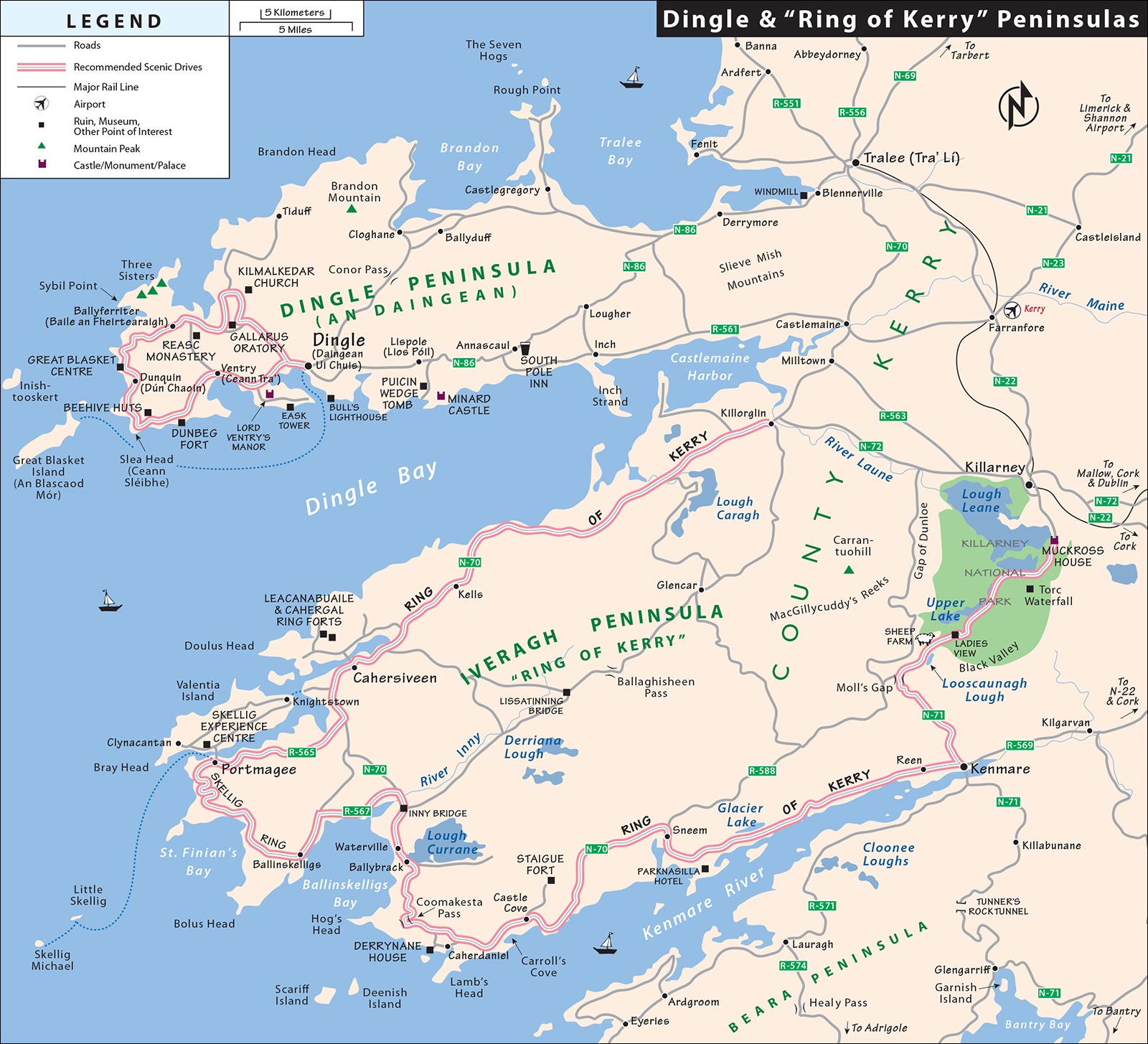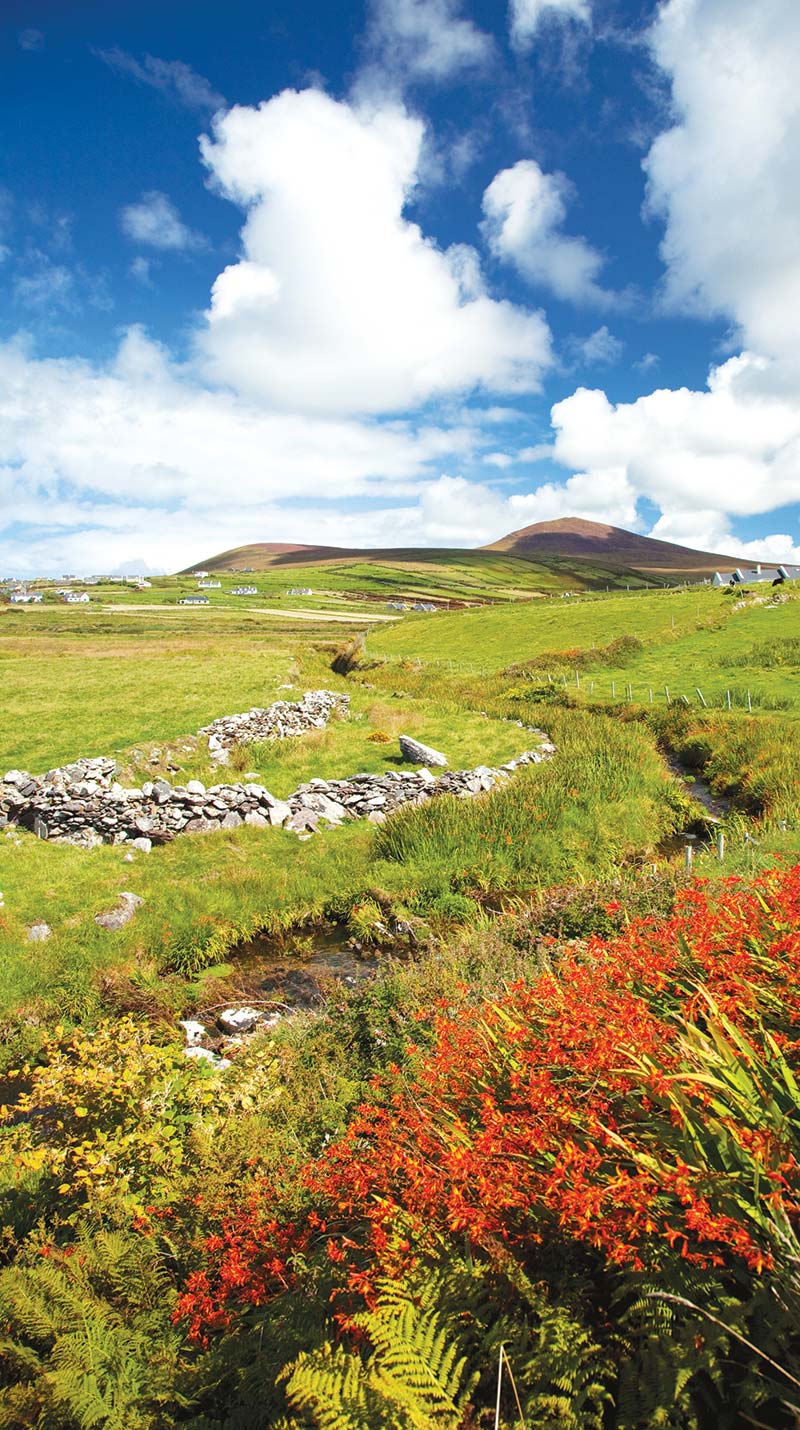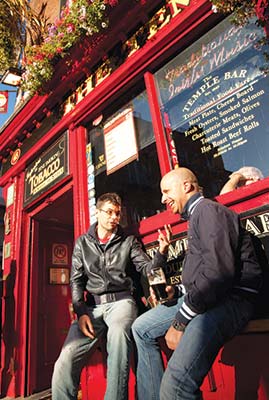Rick Steves
IRELAND 2016
Rick Steves & Pat OConnor
Ireland
You probably wont find the proverbial pot of gold in Ireland, but you will find plenty of treasure, starting with the engaging and feisty Irish people.
Belly up to the bar in a neighborhood pub and engage a local in conversation. Want to really get to know the Irish? Ask for directions. Its almost always a rich experience and a fast way to connect with locals. Nearby friends often chime in with additional tidbits that may or may not be useful, and soon its a communal chitchat session.
That legendary Irish gift of gab has its roots in the ancient Celtic culture. With no written language (until the arrival of Christianity), the ancient Celts passed their history, laws, and folklore verbally from generation to generation. Even today, most transactions come with an ample side-helping of friendly banter. As an Irishman once joked, How can I know what I think until I hear what I say? Contemporary Irish writer Colum McCann described it as, ...maniacal meanderings...kites of language...clouds of logic.
The Irish love their proverbs and revere their past. According to an old Irish adage, When God made time, he made a lot of it. Irish history stretches back thousands of years, yet is as close as the mist-shrouded ruins around the next bend of a country road. Ireland is dusted with undisturbed prehistoric stone circles, burial mounds, standing stones, and table-like dolmens...some older than the pyramids, and all speckled with moss. While much of Europe has buried older cultures under new, Ireland still reveals its cultural bedrock, dating back to the time when our ancestors finally stopped hunting and gathering and began to build to last. Its a place to connect with your roots, even if youre not Irish.
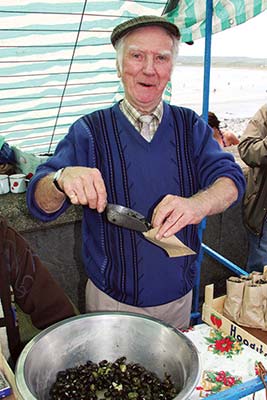
Though a relatively small island (about the size of the state of Maine), Ireland has had a disproportionately large impact on the rest of the world. Geographically isolated in the damp attic of Dark Age Europe, Christian Irish monks tended the flickering flame of literacy, then bravely reintroduced it to the barbaric Continent. Ireland later turned out some of modern literatures greatest authors. In the 1800s, great waves of Irish emigrants fled famine and colonial oppression, seeking new opportunities abroad and making their mark in the US, Canada, New Zealand, and Australia. And although peace now prevails in Northern Ireland, the religious and political conflict there long held the worlds attention.
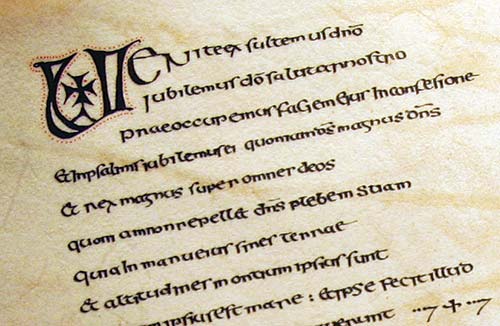
Politically, the Irish people are split between the Republic of Ireland to the south (with 4.6 million people and 80 percent of the land) and Northern Ireland (with 1.8 million people). Northern Ireland is a province of the United Kingdomlike Scotland (pending a late 2014 independence vote) or Waleswhile the Republic is an independent nation with its own seat at the UN...stuck alphabetically between Iraq and Israel. The island is further quartered into four ancient provinces that predate modern borders (Leinster, Munster, Connaught, and Ulster) and 32 counties (26 in the Republic and six in the North), each with its own identity and regional pride.
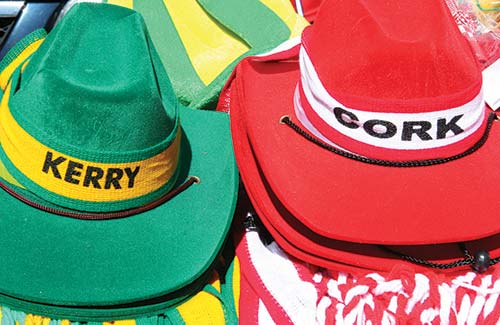
This 300-mile-long, saucer-shaped island, ringed with some of Europes most scenic coastal cliffs, is only 150 miles across at its widest pointno matter where you go in Ireland, youre never more than 75 miles from the sea. Despite being as far north as Newfoundland, Ireland has a mild maritime climate, thanks to the Gulf Stream. Snowfall is rare and temporary here. Rainfall, on the other hand, ranges from more than 100 inches a year in soggy, boggy Connemara to about 30 inches a year in Dublin. Any time of year, bring rain gear. As Irelands own Oscar Wilde once quipped, There is no bad weather...only inappropriate clothing.
REPUBLIC OF IRELAND
Forget all the clichs youve absorbed from ads for Lucky Charms cereal or Irish Spring soap, and immerse yourself in authentic Ireland.
Passionate, poetic, and pugnacious...the Irish have confounded others throughout time. Queen Elizabeth I, as tough a British monarch as has ever graced the throne, once famously hissed in frustration that the Irish were all Blarney as she negotiated with the highly evasive Irish lord of Blarney Castle. An exasperated Sigmund Freud said, The Irish are the only race whose insanities cannot be cured by psychoanalysis. And the Irish inspired the English poet G. K. Chesterton to write:
The great Gaels of Ireland
The lord hath made them mad
For all their wars are merry
And all their songs are sad.
The Irish seem born with a love of music. At social gatherings, everyones ready to sing his or her party piece. Performances are judged less by skill than by uninhibited sincerity or showmanship. Nearly every Irish household has some kind of musical instrument on a shelf or in a closet. And live music is a weekly (if not nightly) draw at any town pub worth its salt. Pub music ranges from traditional instrumentals (jigs and reels) to ballads (songs of tragic love lost or heroic deeds done) to contemporary sing-along strummers. Its worth staying until the wee hours for the magical moment when a rare sean nos (Irish for old style) lament is sung to a hushed and attentive pub crowd.
Part of the fun of traveling in Ireland is getting an ear for how locals express themselves in English (sort of)from the surprised distant relative who is gobsmacked (astounded) by your appearance, to the businessman in the pub who complains that the economy is utterly banjaxed (messed up).

